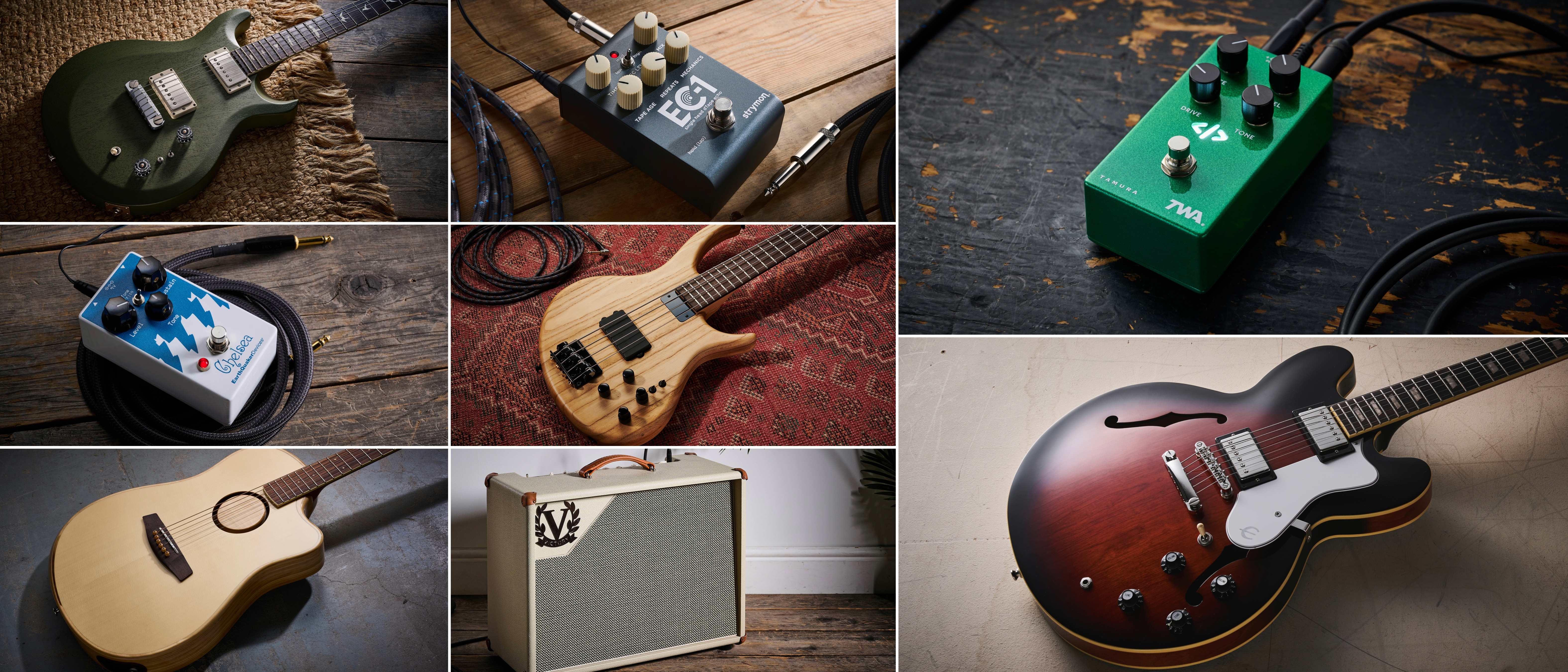How to play the C chord on guitar
Beginner guitar: Here's how to play one of the most common chords you'll find on your guitar-playing journey, as well as several easy variations
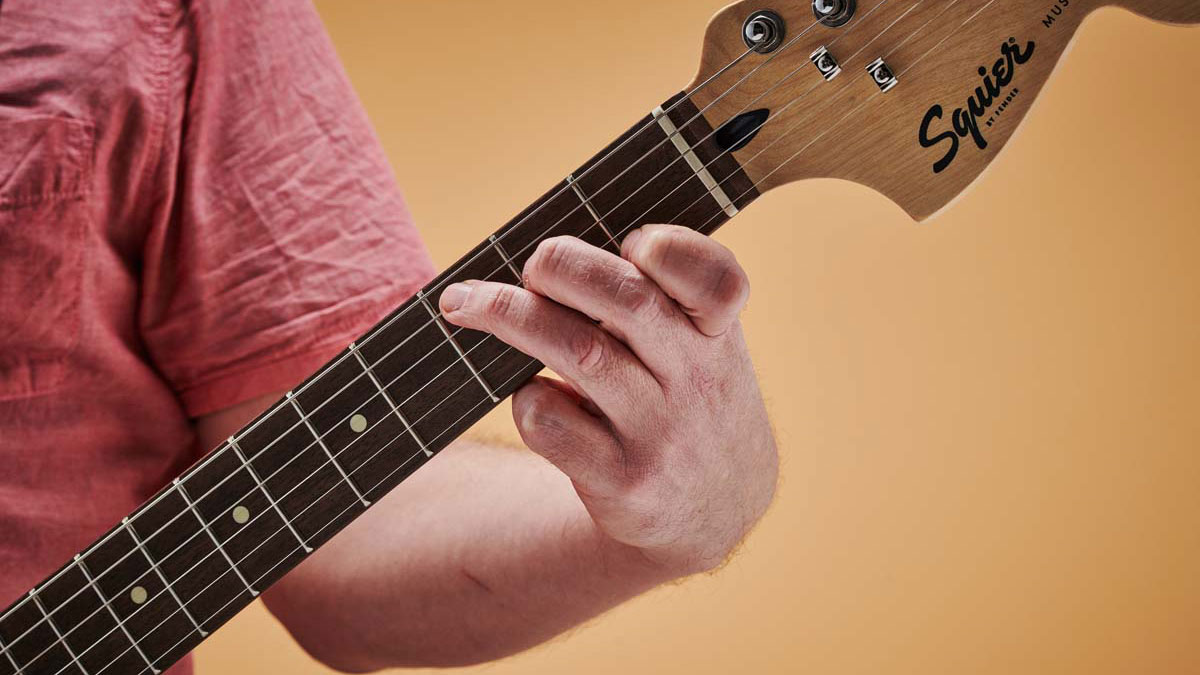
C major is one of the most useful chords you’ll ever learn – so figuring out how to play a C chord on guitar is an essential step for every player.
It’s so foundational that it appeared on both sides of the debut singles by The Beatles and The Rolling Stones. So far in 2021, the humble C chord has appeared in hits like Let’s Go Home Together by Ella Henderson and Tom Grennan, and Leave Before You Love Me by Marshmello and Jonas Brothers.
Of the five basic open chords on guitar (C, G, D, A, and E), C is one of the more challenging because of the stretch needed to play it, but if you practice often, your hand will develop the flexibility you need.
If you’re new to playing chords, it’s a good idea to practice in very short bursts so your fingers don’t start to hurt. Grab your guitar to strum a couple of shapes every time you boil a kettle or use the microwave, and you’ll soon be playing fluently.
Sometimes you might want options besides the standard C major chord to give a variety of sounds. Don’t worry – we’ve got you covered with shapes that can substitute for C in various contexts. For more advanced players, there are barre chord shapes below, too, to give you more options.
How to play the C chord on guitar: open C
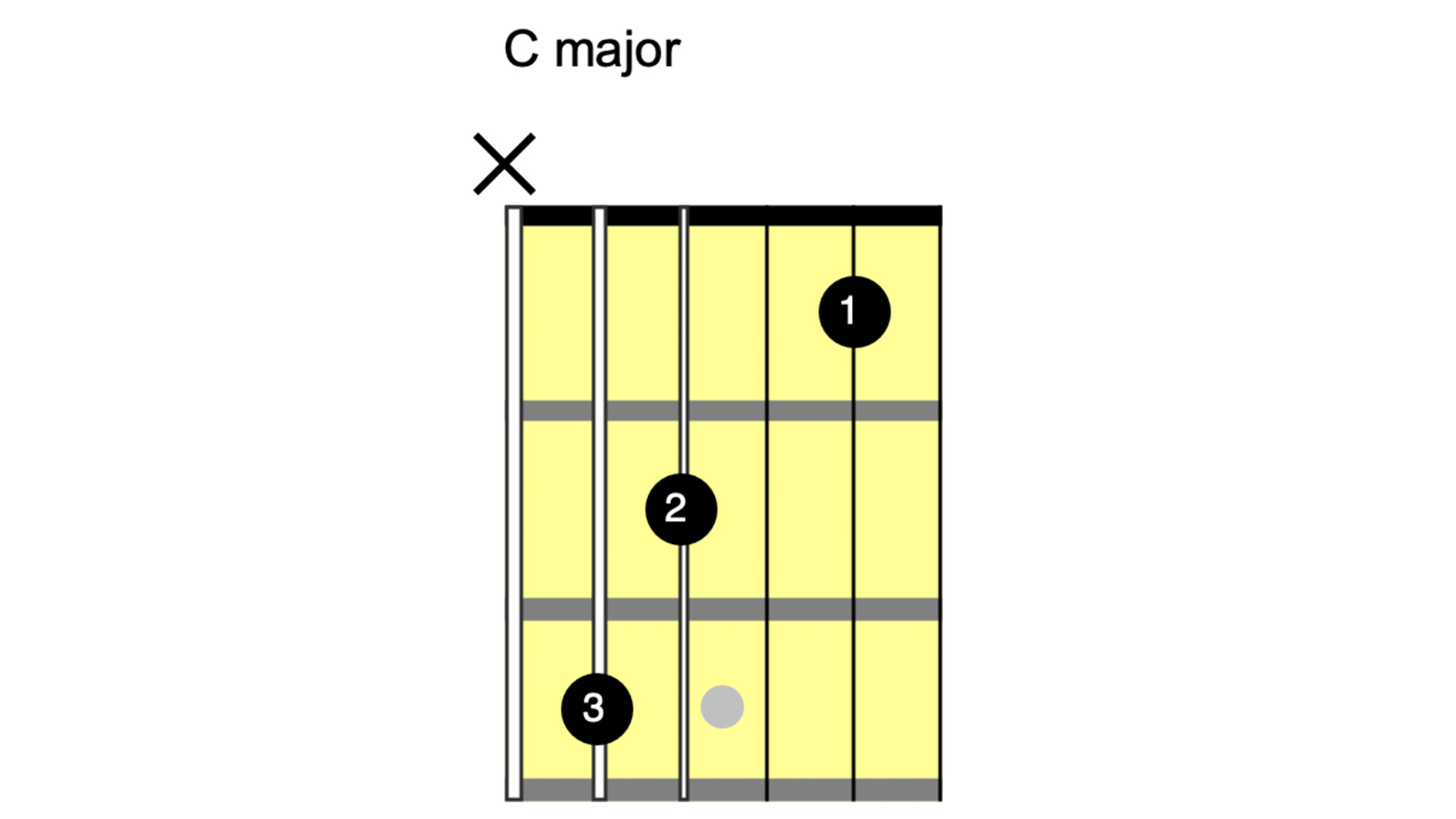
To play the C chord on guitar, place your first finger on the first fret of the B string, your second finger on the second fret of the D string, and your third finger on the third fret of the A string. Try to avoid plucking the low E string when you strum the chord.
Pluck the strings one at a time to check they all ring clearly, as on our demo. If any of the strings sound muted or choked, don’t panic. If one of the open strings is choked, it is probably the underside of one of your fingers accidentally catching it. Try to adjust your hand to make more space.
All the latest guitar news, interviews, lessons, reviews, deals and more, direct to your inbox!
If the fretted notes sound bad, it might be that you are not pressing hard enough. Try to get your fingers close to the fret wire (the metal part) without being on top of it.
That’s where you need the least pressure to get a clear sound. It will take time to be able to stretch your fingers comfortably into this shape. If you’re struggling, try leaving off your third finger. That leaves an A minor 7 (Am7) chord. Try C major again once you’re comfortable with Am7.
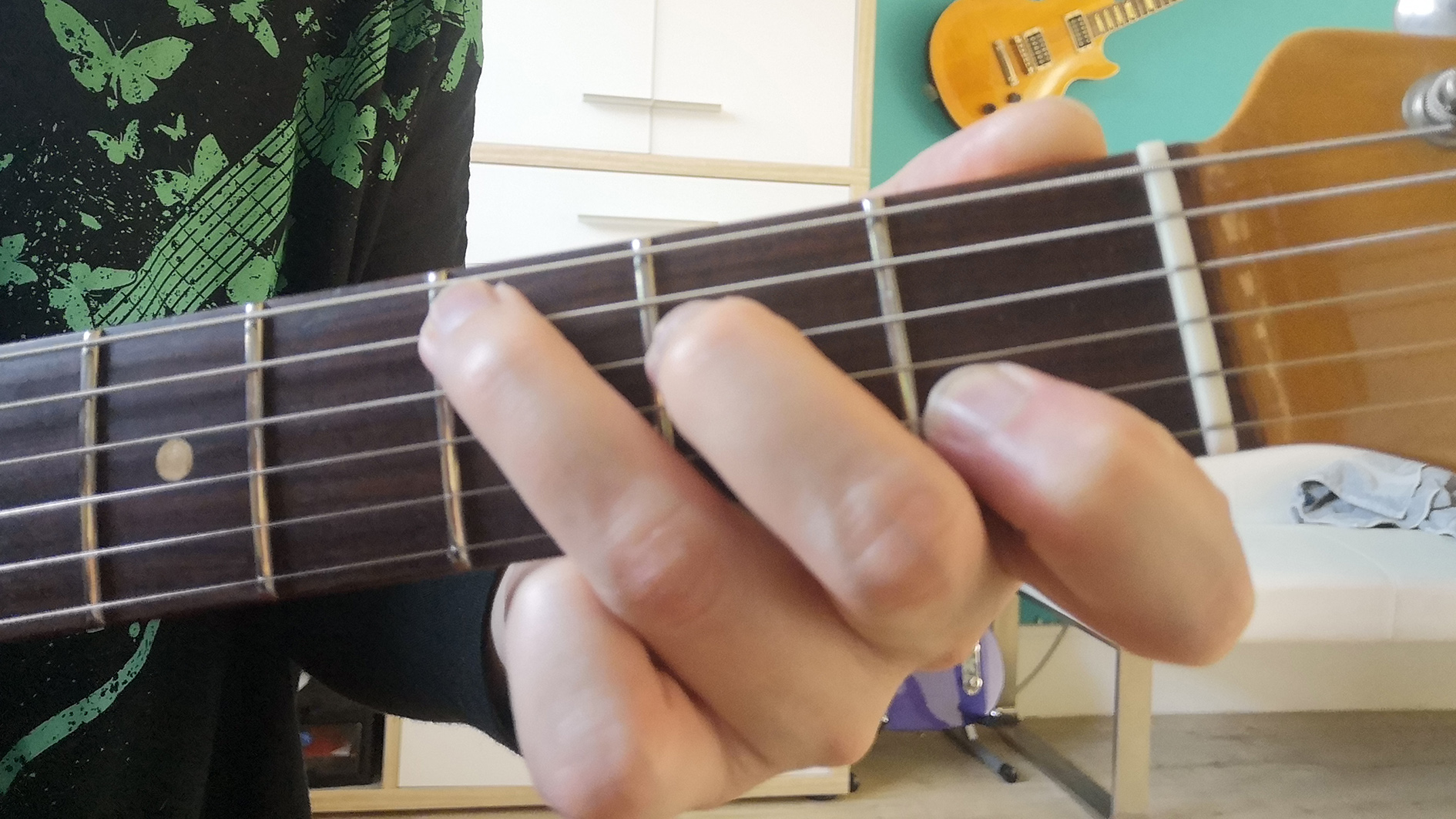
How to play the C chord on guitar: C barre chords
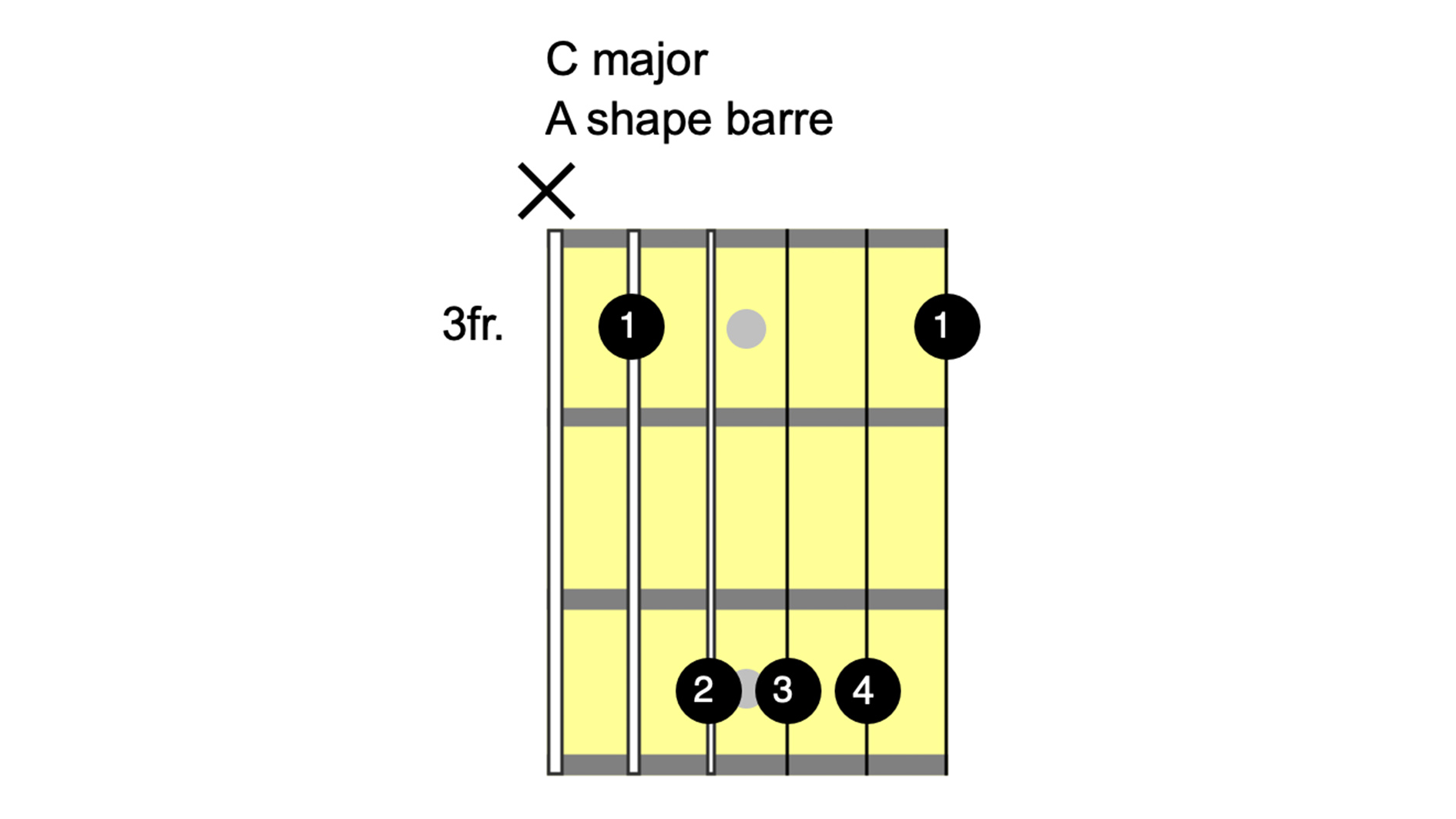
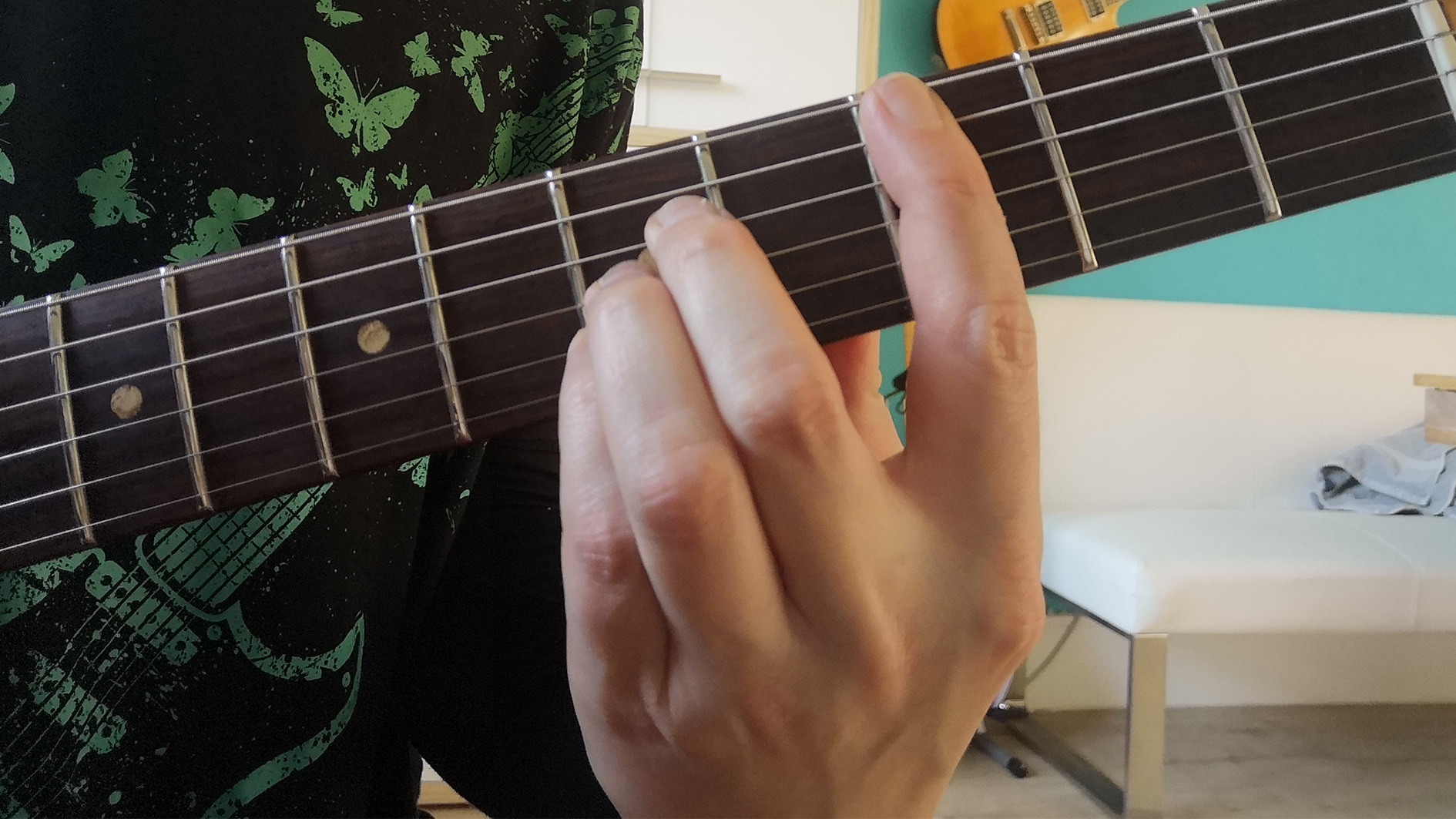
When barring, it’s often easier to roll slightly onto the side of your finger then trying to keep absolutely flat. The side is a little tougher and bonier, which makes it easier to apply pressure. Barre chords are moveable, so once you’ve mastered these shapes, you can play 12 different chords with each of them by moving to different frets.
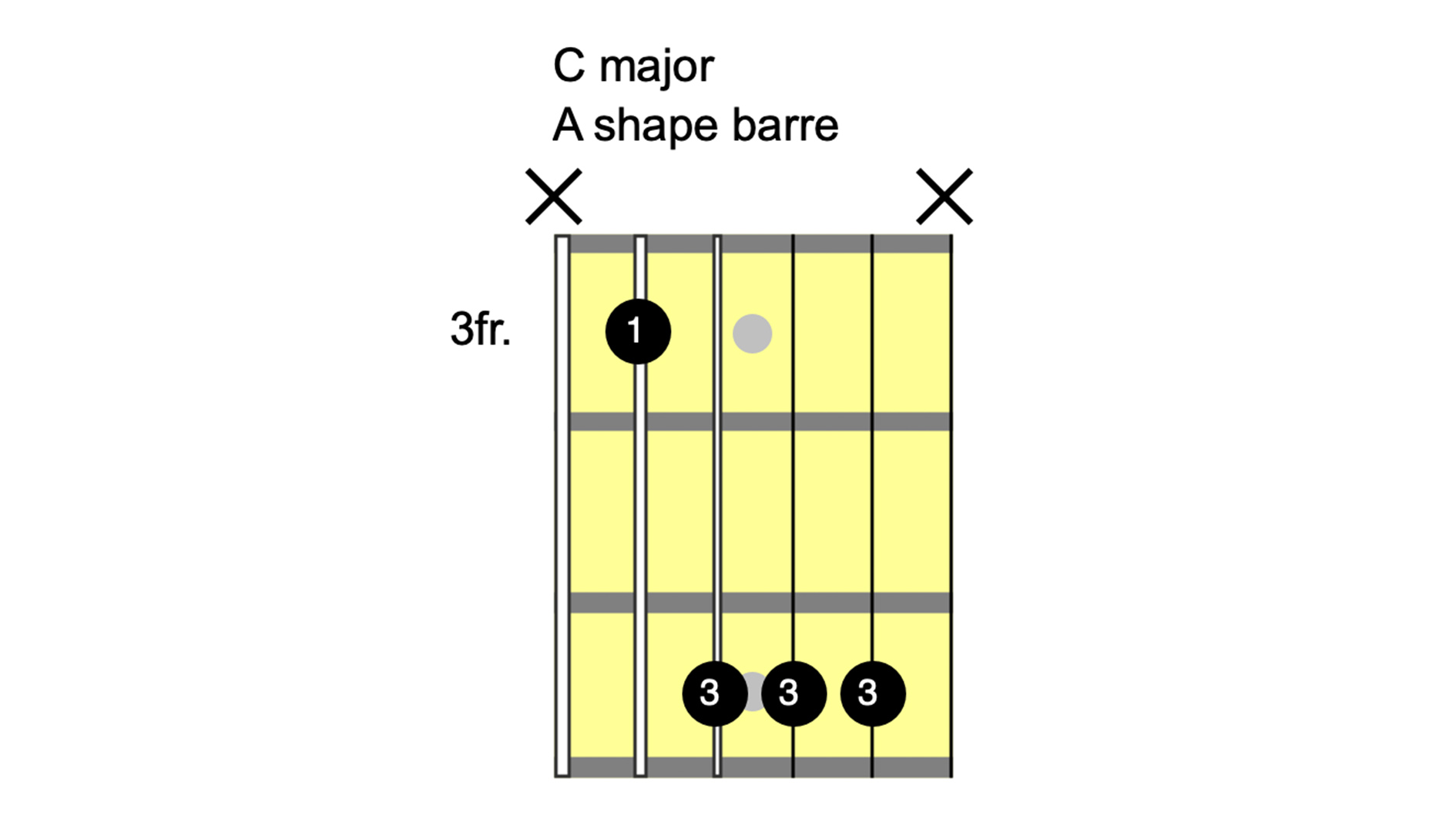
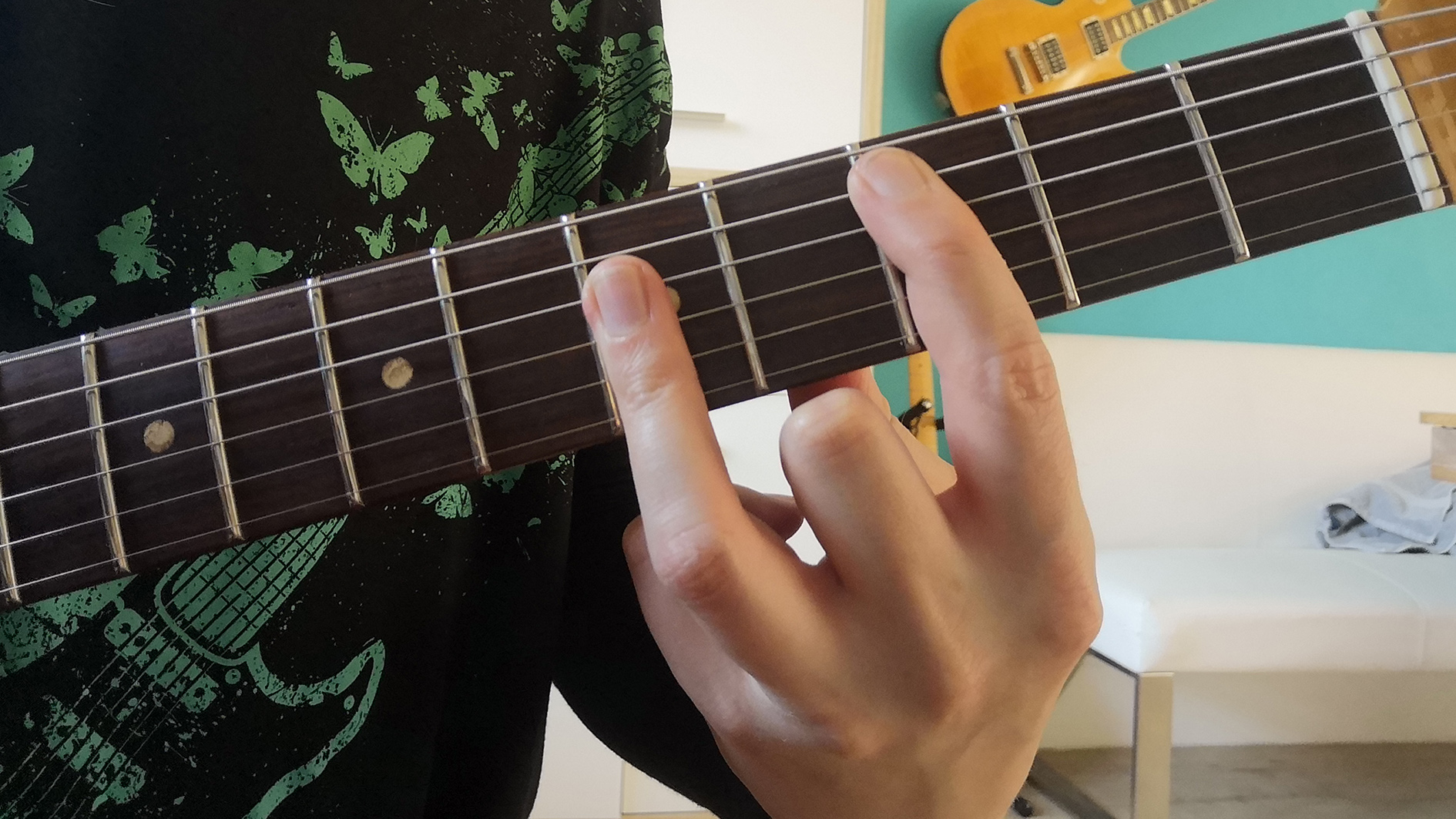
We’ve shown two different ways to play the A shape. The first is to use all four fingers. The stretch between your first and second finger might feel large. Try getting just those two strings working, and if necessary start higher on the neck, where the frets are closer together.
Pro secret: if you’re struggling to fret the high E string accurately, you can leave it out. That note (G) is already being played an octave lower on the D string, so it’s not essential.
The second method is to barre the D, G, and B strings with your third finger. If you do this, you’ll probably mute the high E string. That’s fine. A few jazz Jedis are able to bend their third fingers so the first string still rings clearly, but as we’ve already said, you can leave that note out anyway.
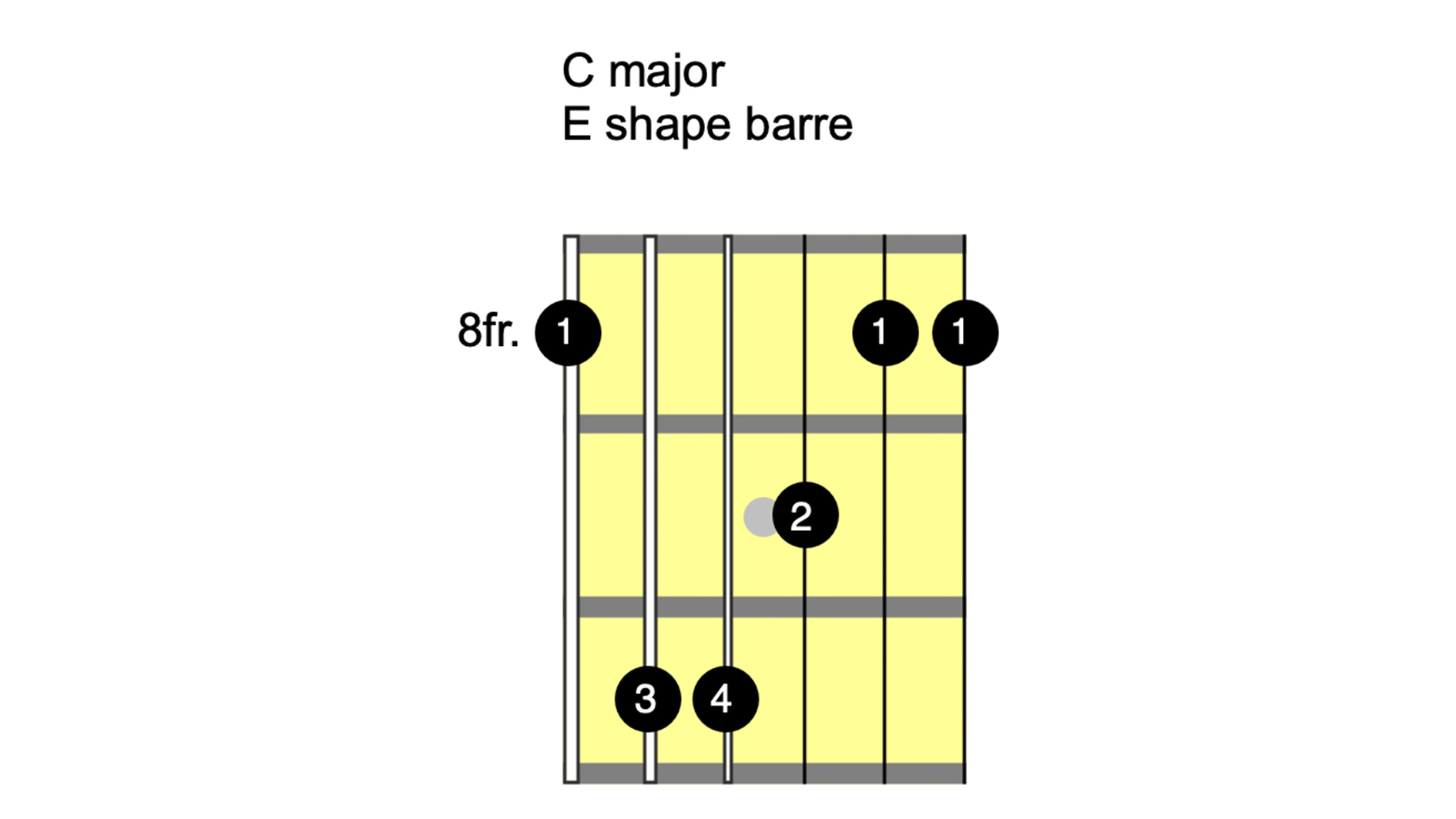
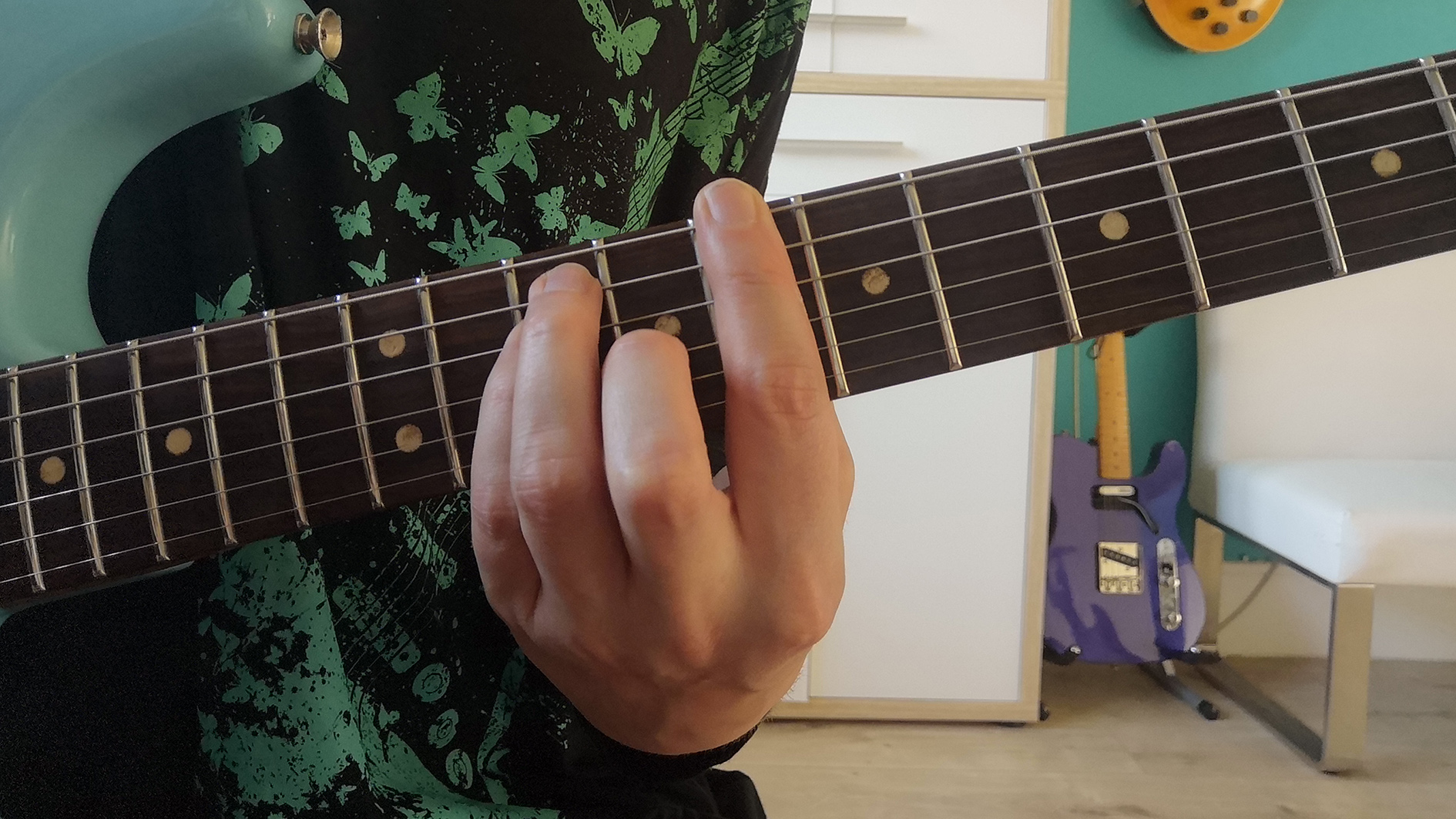
How to play the C chord on guitar: easy C chord variations
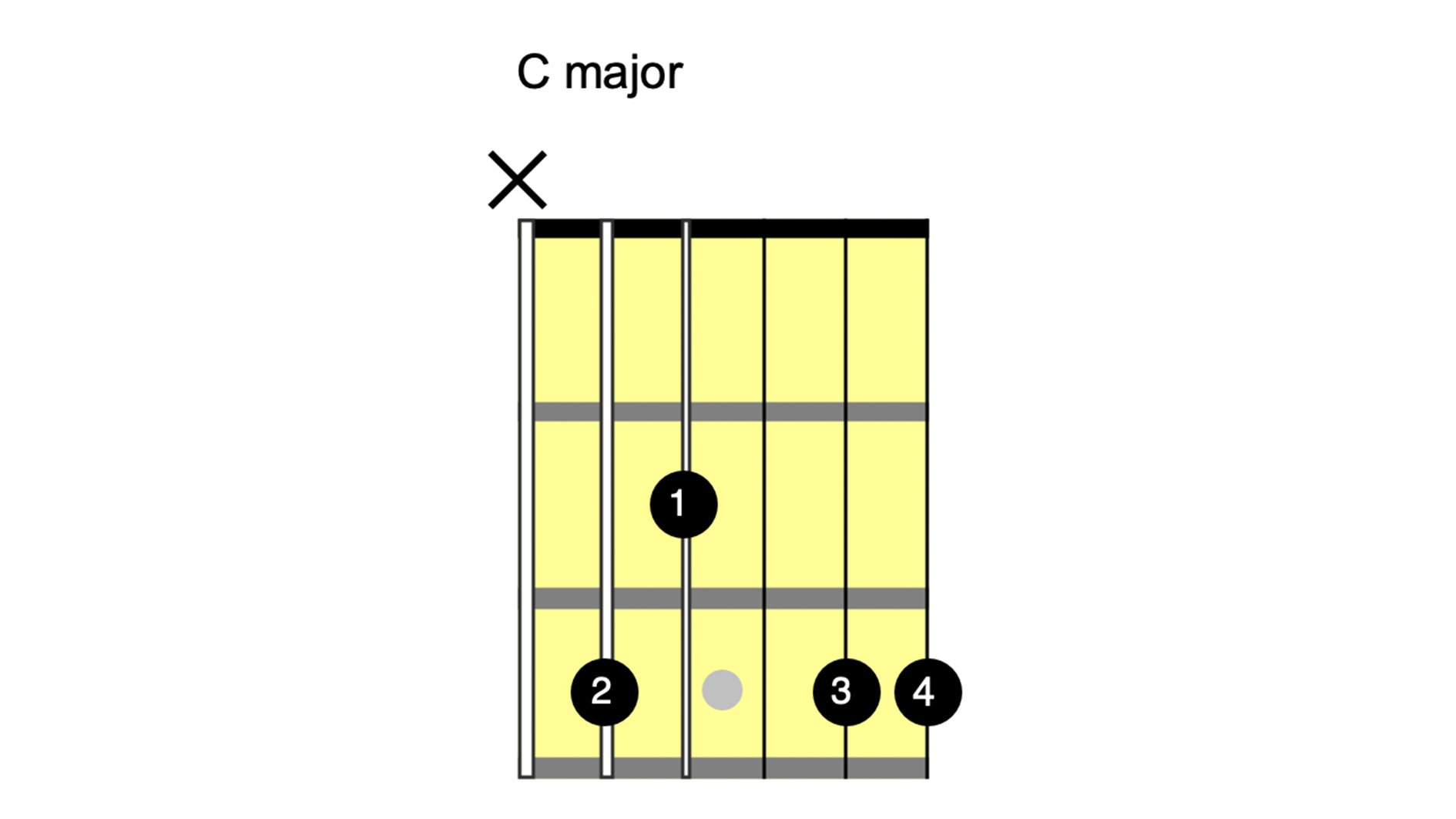
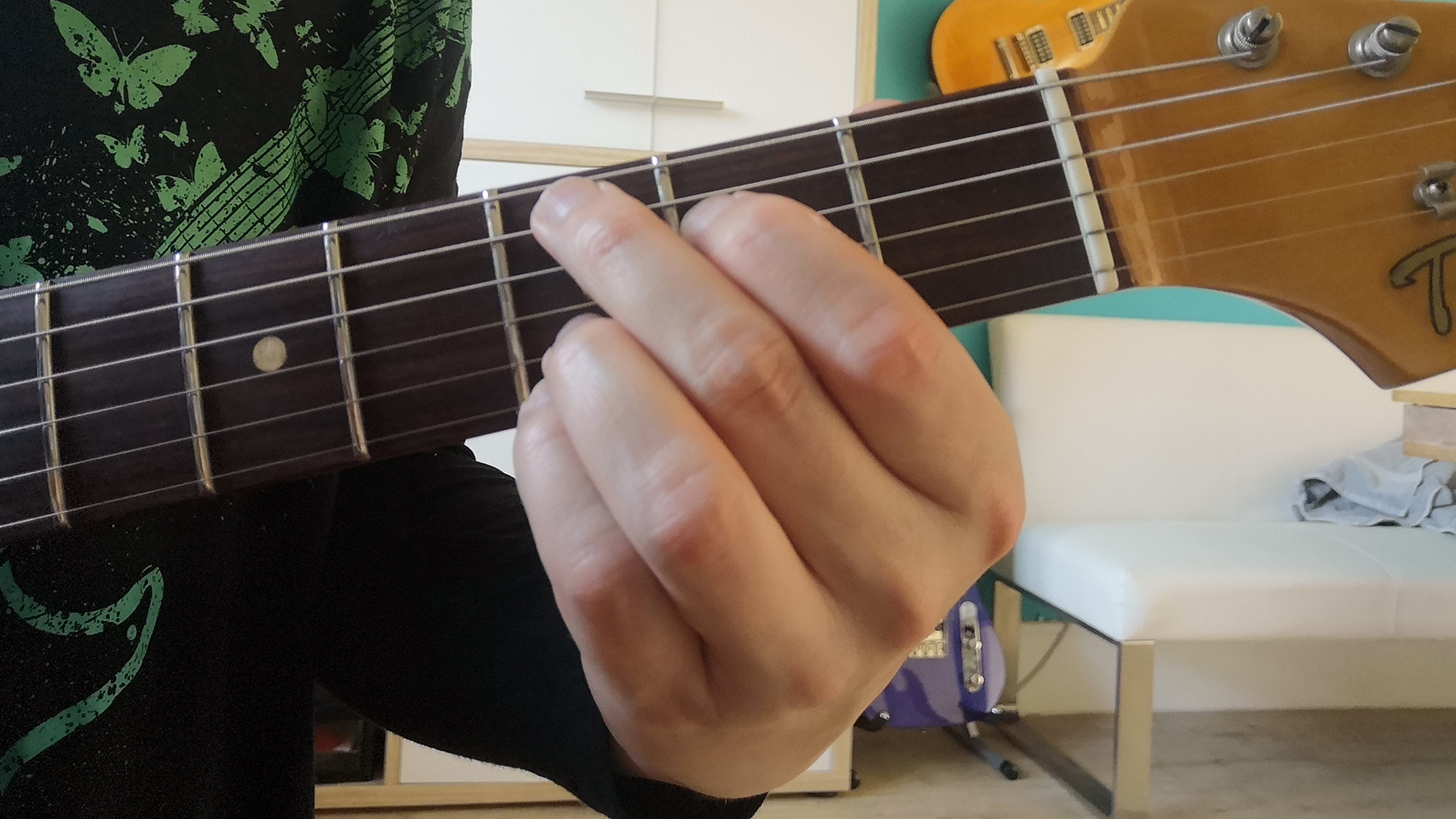
Here are two alternatives to an open C major chord that sound great and give you different sonic options. The first, Cadd9, is extremely common, especially when switching between C and G major chords, because it is similar to a common G major shape.
You can leave your third and fourth fingers down and just hop your first two fingers up and down by one string to move between the two. You can hear that method in songs like Good Riddance (Time of Your Life) by Green Day, Perfect by Ed Sheeran, and Sweet Child O’ Mine by Guns n’ Roses. Cadd9 almost always works as a substitute for C major, and it sounds great.
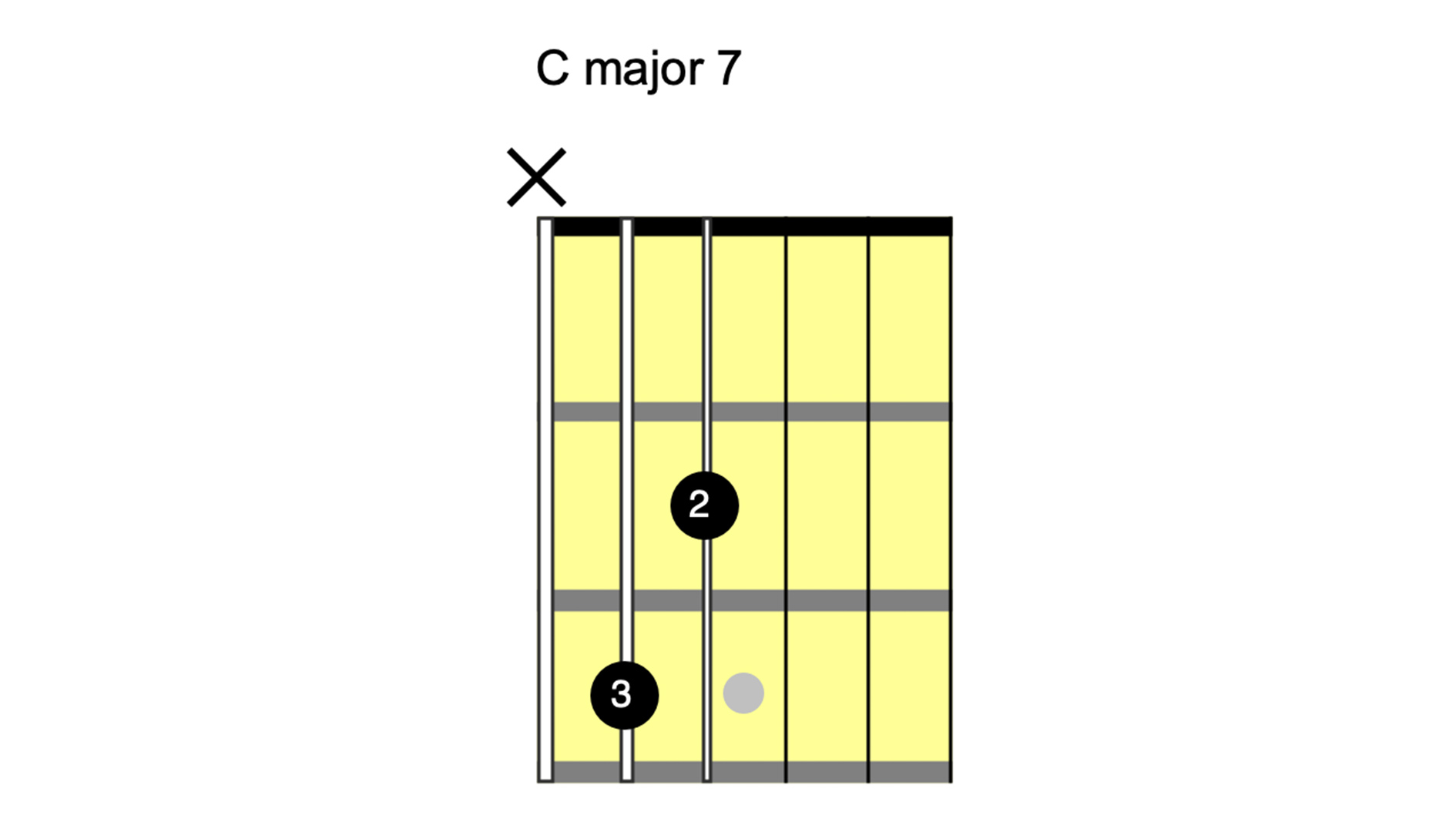
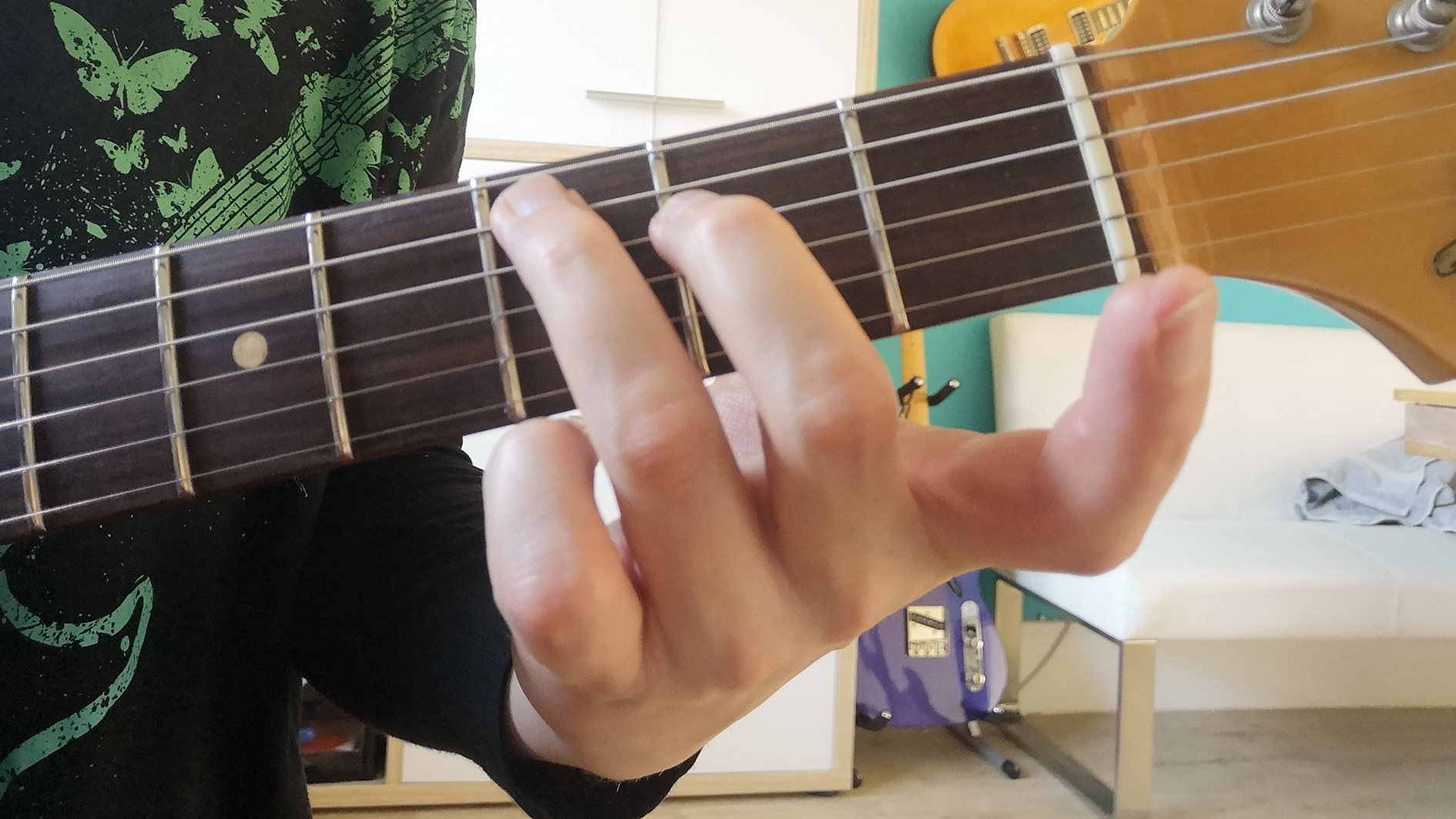
Cmaj7 is a beautiful alternative to C major, although it doesn’t work quite as universally as Cadd9. Your ears will quickly tell you where it’s wrong though! Without diving into music theory, Cmaj7 will often work in jazzy songs and ballads, and almost always sounds terrible in the blues. To play it, simply remove your first finger from the open C major chord you learned above. Easy!
Gear up with our beginner guitar guides
- Take your first steps with the best acoustic guitars for beginners
- Or plug in with the best beginner electric guitars
- Start them young with the best guitars for kids
- Essential guitar accessories for beginners
- Give you playing a boost with the best online guitar lessons
Jenna writes for Total Guitar and Guitar World, and is the former classic rock columnist for Guitar Techniques. She studied with Guthrie Govan at BIMM, and has taught guitar for 15 years. She's toured in 10 countries and played on a Top 10 album (in Sweden).

